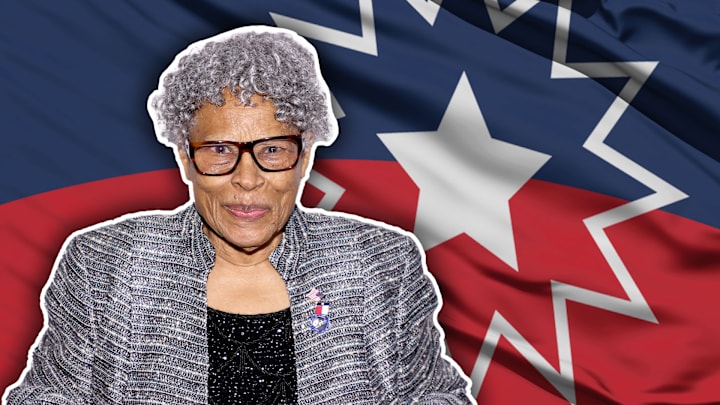On January 1, 1863, Abraham Lincoln issued the Emancipation Proclamation, declaring an end to slavery in the U.S.—on paper, at least. Another two and a half years passed before enslaved people in Texas were told they had been emancipated.
Two and a half years is a lengthy delay even by 19th-century standards for news transmission. There are competing explanations as to why it took so long for the Emancipation Proclamation to reach Texas. It’s been suggested that Lincoln’s messenger was killed en route, or that Lincoln’s government itself conspired to keep the news quiet until after Texas’s harvest season. It’s also possible that the Union just wasn’t able to enact new policies in Confederate states until the Civil War was over.
Whatever the case, General Gordon Granger arrived in Galveston, Texas, on June 19, 1865, and finally informed the enslaved population that they were no longer enslaved. The anniversary of that date, called “Juneteenth,” gave rise to celebrations first in Texas and eventually all over the country. In 1980, Texas recognized Juneteenth as a state holiday, and every other state has since recognized it in some way, too [PDF].
In June 2021, President Joe Biden finally signed a bill declaring Juneteenth a federal holiday—thanks in large part to the activism of 97-year-old Opal Lee, known as the “Grandmother of Juneteenth.”
Opal Lee, Fort Worth’s Finest
Most of Lee’s early Juneteenth experiences were jubilant, but not all. In 1939, when Lee was 12 years old, about 500 white supremacists burned down her family’s house in Fort Worth, Texas, and suffered no legal consequences. This violent display of racial injustice was a stark example of what would later become Lee’s mantra and motivator: “None of us are free until we are all free.”
Lee has spent most of her adult life working to further freedom in all its iterations—in education, housing, and other ways—in her Fort Worth community. She’s been an elementary school teacher, a school counselor, a Habitat for Humanity volunteer, and a member of countless humanitarian organizations. She also helped establish Citizens Concerned with Human Dignity, a foundation that secures housing for underserved citizens, and the Tarrant County Black Historical & Genealogical Society, whose mission is to “research, collect, preserve, and share” the history and contributions of Tarrant County’s Black population.
Juneteenth is a vital part of that history and a symbol of the ongoing fight for freedom—and not just at the local or state level. So, in 2016, Lee kickstarted a movement to get Juneteenth the federal recognition it deserved.
Opal Lee Goes to Washington
Lee set off on a walk from Fort Worth to Washington, D.C., in 2.5-mile increments, signifying how long it took for enslaved people in Texas to learn of their freedom. She didn’t walk the whole way, eventually choosing to hold a 2.5-mile walk in whatever city someone asked her to attend a Juneteenth celebration. In this way, “Opal’s Walk 2 DC” began to attract a national audience.
In addition to her annual ambulatory tradition, Lee launched a Change.org petition in 2019 to make Juneteenth a national holiday. The initial target was 100,000 signatures; it currently has more than 1.6 million. The movement soon reached the legislative sphere, too: In February 2021, Lee helped members of Congress introduce a new version of the Juneteenth National Independence Day Act, which aimed to give Juneteenth national holiday status. (The original bill was blocked by the Senate in 2020.)

This time, Lee’s mission met with success. The Senate unanimously passed the bill on June 15, 2021; the following day, the House passed it by a wide margin, too (415 for, 14 against) [PDF]. On June 17, Lee stood beside President Biden as he signed the bill into law.
Lee’s work didn’t end once the ink had dried. Two days later, she was back in Forth Worth commemorating the holiday by leading her community in a 2.5-mile walk—a Juneteenth tradition that has continued all over the country in the years since. For Lee, Juneteenth has always been about freedom in its broadest sense.
“We are talking about freedom for everybody. And we’re not free yet. We’ve got too many disparities—absolutely too many to say that we are free,” she told Local Profile in October 2022. “I’m talking about education where they don’t want us to tell the truth … freedom from the joblessness and the homelessness and the health care that some of us can get and others can’t. We need freedom from these things, and it’s going to take all of us working together to get it done.”
Read More About Black History:
A version of this story ran in 2021; it has been updated for 2024.
